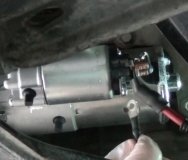I'm really aggravated with the insane engineers who seem to have the need to hang an unnecessary computer onto every system that never needed a computer before. (My '88 Grand Caravan daily driver has one very appropriate Engine Computer, and that's it. I have all the toys, like power windows, locks, and seat, and none of them need a computer.
When a computer DOES fail, you'll see some function or system no longer working. When system voltage goes high enough to damage a computer, that one will be dead, and possibly blow a fuse or two. What usually will not happen is individual functions within that computer stops working. As an example, a Transmission Computer that's damaged this way will cause the transmission to stay in one gear. It will not cause something like shifting at the wrong speeds or skipping a gear. A Body Computer won't cause just inoperative interior lights. It will cause all the system it controls to be dead. That includes wipers, power locks, and in some cases, power windows and / or remote keyless entry.
To check the starting system, start by measuring the battery voltage, but the meter probes should be right on the battery's posts, not the cable clamps. A good, fully-charged battery will measure 12.6 volts. If you find it close to 12.4 volts, it's run down. If it's good but totally dead, it will measure closer to 12.2 volts. In that case, charge it at a slow rate for an hour, then recheck it. Once it's at 12.6 volts, it should crank the engine fast enough for it to start.
If you still have a slow-crank condition, measure the battery voltage again while a helper cranks the engine. Let me know what voltage you find during cranking. If it stays above 9.6 volts during cranking, move the voltmeter probes to those cable clamps and measure again. You should find exactly the same voltage. If it is considerably lower, one of those connections is loose or dirty.
If the voltage right on the battery posts drops below 9.6 volts during cranking, even after charging the battery, it is worn out. Normally there's no guesswork. With a bad battery, the voltage will drop real low. Also, it may measure around 11 volts or less when you're not cranking the engine if it has a shorted cell.
Wednesday, February 4th, 2015 AT 4:37 AM



